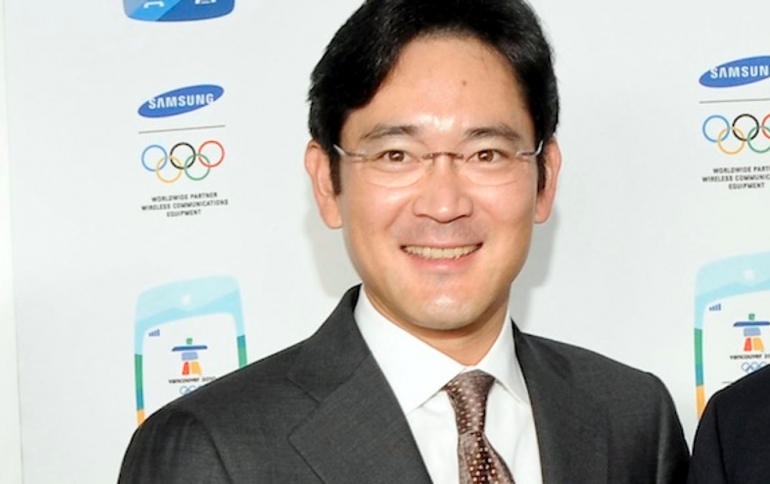
Samsung heir Lee Issues Apology Letter Over Succession, Labour Controversy
Samsung Group heir Lee Jae-yong on Wednesday apologised over controversial succession plans and said he will not hand over management rights to his children at the family-controlled conglomerate.
In a rare open letter posted on Samsung's website, Lee expressed regret for the group’s failure to strictly abide by the law and ethics.
“Samsung failed to live up to public expectations. We have caused disappointments and concerns,” the 51-year-old Lee said at a Samsung office in southern Seoul.
The vice chairman of Samsung Electronics has been embroiled in a bribery scandal involving South Korea’s impeached president and which prosecutors said was aimed at smoothing business succession.
"Samsung has not strictly complied with laws and ethics, and also has been inadequate in communicating with society," Lee said.
"All of these came from our inadequacy, and it's my fault. I apologize," he said.
This is the first time that Lee has made a public apology since June 2015, when he did so over a Samsung hospital's mishandling of the Middle East Respiratory Syndrome (MERS).
Lee's latest action comes after the group's independent compliance committee in March urged him to make a public apology and come up with measures that can improve Samsung's compliance culture in three areas: managerial succession, labor union and communication with civil society.
He also apologised for the behaviour of executives caught sabotaging labour union activities.
Samsung had disallowed labor unions for decades, claiming that its policy actually leads the conglomerate to better ensure its workers' rights and welfare.
The Supreme Court in August overturned an appeals court ruling on the bribery case, raising the possibility of a tougher sentence and potential return to jail for the chief of South Korea’s biggest conglomerate.
Some of Samsung Group’s former and current executives have been investigated or convicted in other cases.
Heer is part of the letter (translated):
"We will make sure that there is no more controversy over the issue of 'succession of management rights'.
..I will never break the law. I will not lean on shortcuts or be ethically condemned.
I will focus only on increasing the value of the company...Samsung should continue to bring talented people, regardless of gender and academic background, regardless of nationality. I have to make sure that those talents work with keen sense of ownership and mission and lead the business in a position more important than me.
..I think that is the responsibility and mission that has been given me.
When I fulfill that role faithfully, Samsung will continue to be Samsung...I will not pass on my children to the company.
..I have kept it in my mind for a long time, but I have been hesitant to reveal it to the outside. It is because I think that it is irresponsible to mention my succession issues after me before I get a proper evaluation, and my management environment has never been so good.
..Samsung's labor-management culture did not respond to changes in the times.
I feel responsibility. We sincerely apologize to everyone who has been hurt by Samsung's union issues...We will strictly observe the labor-management relations laws and guarantee the three rights of labor. We will promote harmony and win-win between labor and management. So, we will establish a sound labor-management culture.
..Compliance is a value that can never be compromised. From now on, I will reaffirm my compliance. We will ensure that compliance is firmly rooted in Samsung's culture.
..Even after the trial involving me, the Samsung Compliance Committee will continue to operate in an independent position. We will do it without interruption.
..We will make a new Samsung suited to the nationality of Korea."
Lee's apology over controversial succession plan came as the tech giant is suffering a slump in its key business areas such as smartphones.
Samsung Electronics saw its sales rise 5.61 percent on-year to 55.3 trillion won (US$45.2 billion), while its operating income increased 3.43 percent on-year to 6.4 trillion won in the first quarter of the year.
However, compared to the company's heyday in 2018, when it made at least 10 trillion won in operating profit, its quarterly performance was mediocre.
"Risk is always next to us, and you cannot predict the future," Lee said.





















